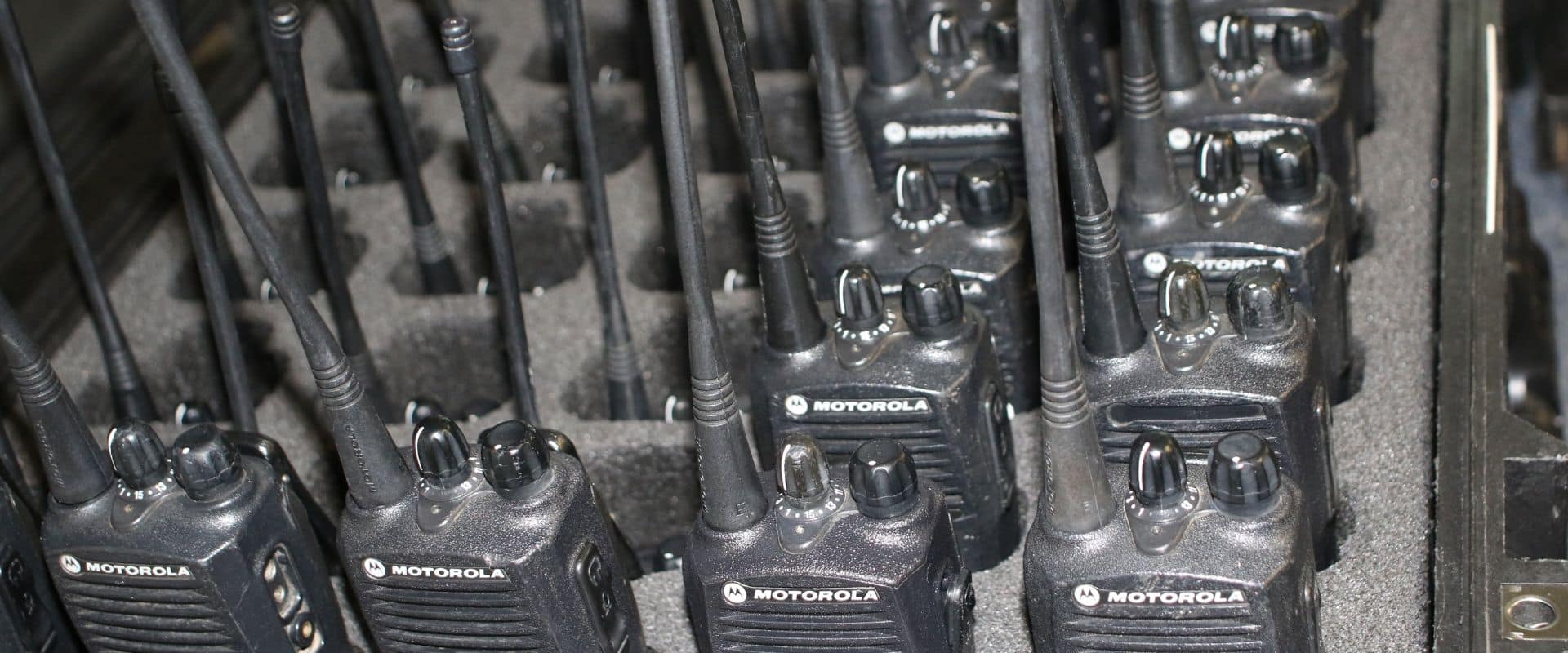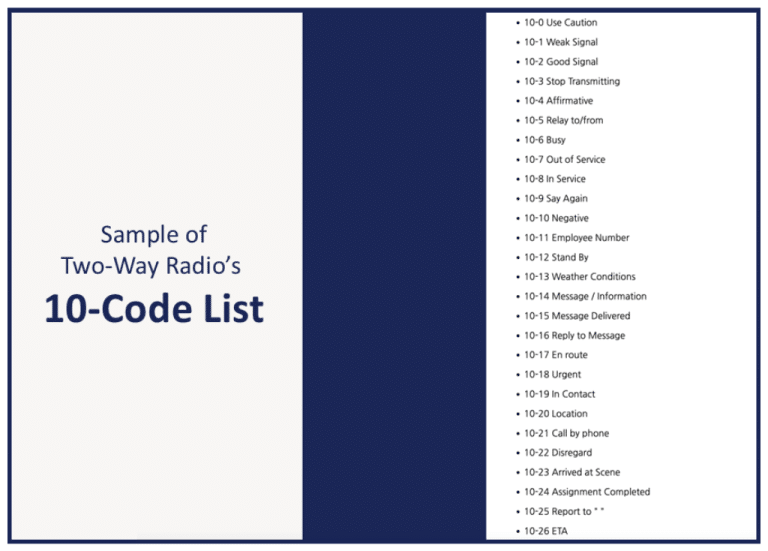It’s your first day on a construction site, and you have a shiny new two-way radio clipped to your belt. Everything is going smoothly until you hear, “Roger, Wilco. Unit 1, Over and Out!” crackling over the airwaves. You freeze. What on earth did that mean? It didn’t take long for you to realize that you were listening to a completely unique two-way radio language—one that’s essential for keeping things running smoothly.
Does the young construction worker above remind you at all of yourself? Are you feeling a little uncomfortable talking on your radio because you don’t want to sound like a complete “rookie?”
Actually, learning two-way radio slang is easier than it might seem. Let’s take a look at some common two-way radio slang that will help you negotiate the airwaves with confidence.
Glossary of Common Two-Way Radio Slang
When you talk on a two-way radio, clear communication is vital, but often the language on the airwaves seems foreign. From “10-4” to “Roger that,” these unique walkie-talkie communication codes and walkie-talkie slang developed by radio users is more than just shorthand — it’s a way to stay efficient, focused, and understood.
Whether you’re a seasoned radio operator or you need a course in “walkie-talkie lingo for beginners,” understanding two-way radio terms of the “walkie-talkie dictionary” can help you avoid confusion and sound like a pro.
Ready for some tips on decoding the airwave language? Let’s dive into the quirky world of two-way radio slang.
Affirmative
All Clear
Break
Breaker
Charlie Foxtrot
Copy
Dead Key
ETA
Go Ahead
Handle
Key Up
Mayday
Over
Out
Radio Check
Roger
Say Again
Stand By
Wilco
The Two-Way Radio 10-Code
To streamline radio talk even moreso, a shorthand system known as the “10-Code” was developed. These numeric codes simplify messages, reduce radio traffic, and minimize confusion in urgent situations. Below is just a sampling of the APCO two-way radio 10-Code list. Click here for all 100+ codes.
Trust the Pros at SJM Industrial Radio
Learning the slang used in two-way radio communication helps make conversations faster, more precise, and more efficient. Whether you’re a seasoned radio user or just starting, knowing this radio slang will keep you in the loop and make you sound like a two-way radio pro on the airwaves.
And speaking of two-way radio pros, the communications experts at SJM Industrial Radio stand ready to meet your every two-way radio need. Whether it be sales or rentals of two-way radios for your next event or project or the complete ground-up design and construction of a complex communications system, SJM Industrial Radio is the professional choice.
Founded in 1991, SJM Radio is a family-owned business that prides itself on creative custom communications solutions and personalized customer service. SJM is a Platinum Motorola Radio Channel Solutions Partner serving the Los Angeles area for over 30 years. They sell a full line of quality Motorola two-way communications equipment.
So keep your foremen and construction crews, production assistants, stunt and movie crews, security staff and more CONNECTED!
Come by or call the award-winning team at SJM Industrial Radio today!


